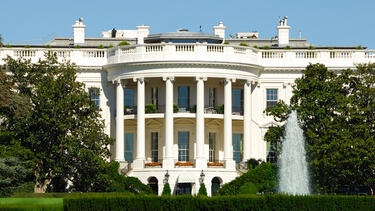How Could President Trump Affect the Global Economy?
Global Network for Advanced Management experts from four continents weigh in on the likely effects on their home countries of President-elect Trump’s policy ideas. They foretell a period of uncertainty and adjustment, as global agreements are reevaluated and supply chains disrupted.

Read more from experts around the Global Network for Advanced Management on Global Network Perspectives.
Singapore
Alex Capri, Visiting Senior Fellow, Department of Decision Sciences, NUS Business School
Trump’s election has ushered in an era of heightened uncertainty and anxiety in global business. Companies are questioning to what extent value chains will be affected by protectionist tariffs and by a Western backlash against globalization. It’s not clear how far Trump will go to carry out his campaign pledges. Imposing high tariffs against goods originating from Mexico, China, and (potentially) the EU, Japan, and Korea could have devastating effects on production networks and business ecosystems.
A worst-case scenario would include a trade war between the U.S. and China—the world’s two largest economies—whereby the Chinese impose retaliatory tariffs on U.S. goods and services. Even if no trade war occurs, protectionist tariffs will severely disrupt global value chains of not only U.S. and Chinese firms, but thousands of foreign subsidiaries that have embedded themselves in cross-border production networks. If Trumpian policies disrupt these value chains, it’s likely that many US firms and US-based foreign subsidiaries will relocate their activities elsewhere, creating the exact opposite outcome intended.
Brazil
Alexandra Strommer Godoi, Economics Professor, FGV Escola de Administração de Empresas de São Paulo
As Brazil struggles to fix the costly inheritance of its populist binge, which led to deep recession, high inflation, fiscal disarray and, ultimately, to the impeachment of a president, it must now face the consequences of the world embarking on its own populist cycle, led by Trumpism.
Changes in policy that might result from the US election catch Brazil at a sensitive moment. After a long and deep recession, Brazil was, as of November 2016, ready for a recovery. Monetary policy started to be eased, as prices showed signs of stabilization and fiscal measures were taken to reign in government’s deficit. Confidence began a timid recovery, and the country was counting on foreign investment in infrastructure projects to propel growth. This scenario is now upset by the uncertainty of a Trump presidency, combined with amplified concerns on the European political calendar.
...
However, despite the negative short-term outlook, Brazil’s medium-term fundamentals are more defensive than most when it comes to the effects of Trump’s policies, in particular his promises to renegotiate trade agreements and implement higher import tariffs. Despite its status as a respectable exporter of commodities, Brazil’s economy is very inward-looking and has a remarkably low dependency on exports, which represent only 11% of GDP (compared to 26% in Chile and 33% in Mexico, for example). In addition, only around 13% of Brazilian exports are destined for the United States.
Ghana
Kobby Mensah, Lecturer, University of Ghana Business School
As Dr. Agyekum Addo, chair of the Ghana Investment Promotion Council (GIPC), puts it, Ghanians do not in their wildest dream expect Trump to set foot in Africa, let alone Ghana. Crucially, also, it is highly expected that trade agreements such as AGOA [African Growth and Opportunity Act] could suffer the fate that Trump prescribes for NAFTA and TPP. If such is the case, according to Dr. Agyekum Addo, the casualties would be the agriculture and non-traditional export sectors.
The predictions from the chair of the GIPC is not all doom and gloom though. He also observes that Trump could prove us wrong, as he always did during the U.S. primaries and the general elections. Dr. Addo notes that as a seasoned businessman, Trump, more than any politician, understands how the movement of capital within the global space can contribute to America’s success, and bring to reality his mantra of “making America great again” if there is any such thing.
Spain
Gayle Allard, Professor, IE Business School
Trump’s victory is seen with trepidation from Spain. His anti-globalization rhetoric promises that initiatives like the TTIP, which would boost growth for both sides, will be scrapped; and protectionism will prevail over freer trade. Spain exited its recession thanks to export growth, and a trade slowdown hurts its prospects and those of the world.
On the upside, Spanish companies could win contracts in Trump’s infrastructure program, and the stronger dollar may boost eurozone exports and induce more Americans to vacation in Spain. Rising U.S. interest rates as Trump overstimulates the economy will boost returns for pension funds and others battered by near-zero interest rates. This could bring Spain some benefit. Globally, though, emerging economies with U.S. dollar debt will struggle, as will highly indebted developed countries like Spain if their interest rates follow U.S. yields upward.
Read the full article, including contributions from South Africa, Germany, and Switzerland, on Global Network Perspectives.